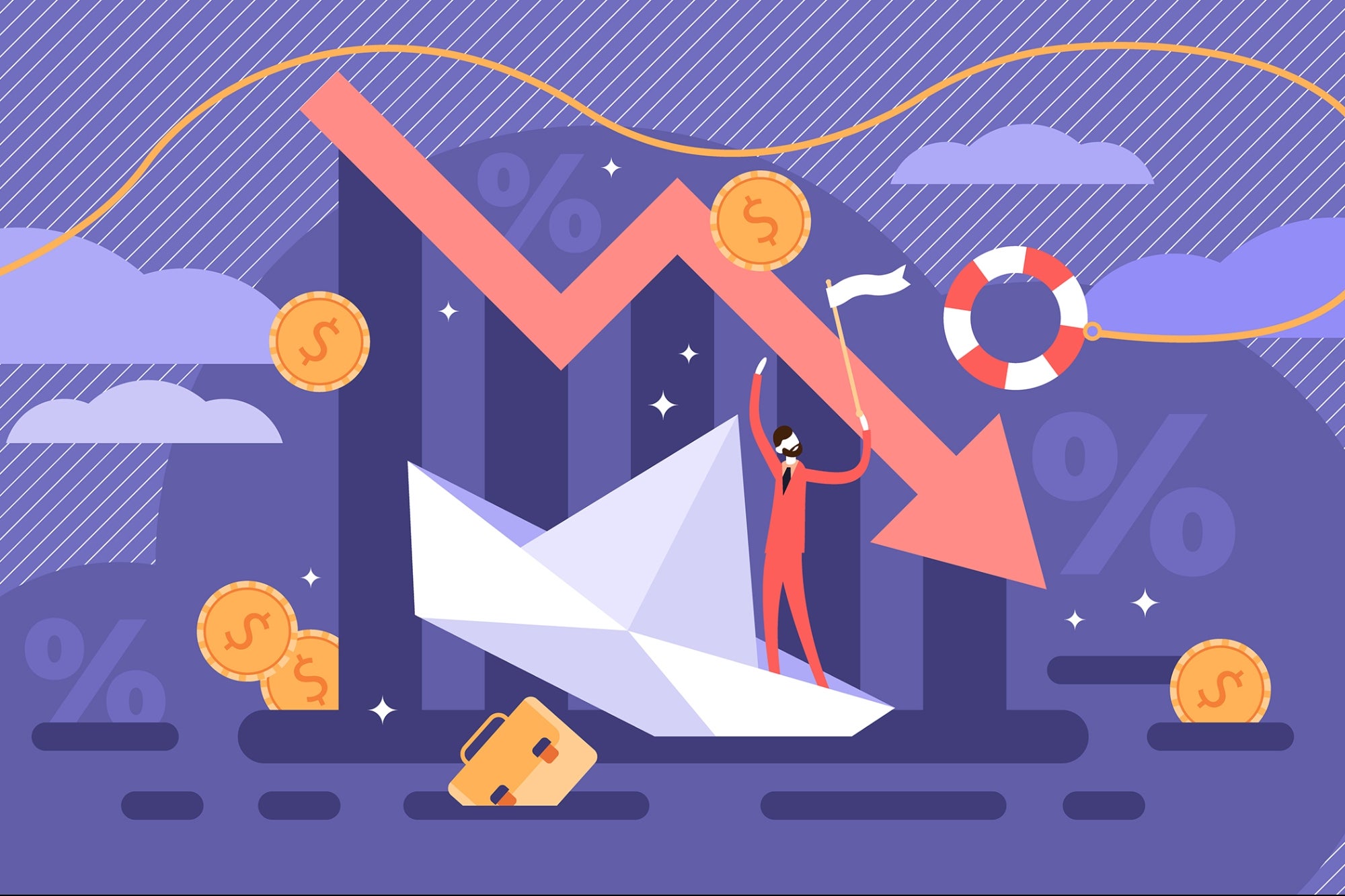When in Doubt, Don't: 4 Lessons to Learn from the Crypto Implosion
Before making any big investments in a hot new technology, take a full inventory of the doubts behind it.

By Jan Risi •
Key Takeaways
- Count the doubts: Take inventory of your own doubts along with the expressed uncertainties of experts.
- Invest in what you know: Don’t invest in any new technology unless you understand its fundamentals.
- Pay attention to the people involved: If you don’t feel comfortable with the people behind something, don’t invest in it.
- When risk is everywhere, be more careful: Invest first in being more informed and then, take a more calculated risk.
Opinions expressed by Entrepreneur contributors are their own.
I recently opened an office in Miami, and I love it. It's simple — just a common area and a conference room — but modern and right by the water. It has a big storage area at the entrance, which I first considered converting into another conference room. But it had an odd electrical setup, so I asked my contractor about its history.
According to him, between the electrical work, air conditioning units and security, the space had likely been a crypto trading office. He was sure of it. Then, I realized I had seen that setup before.
In Miami, crypto is everywhere, with servers running so much data they require their own air conditioning units. When FTX collapsed, and the crypto market lost billions, Miami felt its impact. I knew a lot of people — friends and business associates — who went from making so much money on paper to now, hurting.
Fortunately, I managed to stay out of it. Sure, I was interested. A few people I knew made a lot of money on crypto, which made it tempting. Still, I could hear my dad's voice, chiming in with that old chestnut, "when in doubt, don't."
These are the lessons I learned from this crypto collapse by following his sage advice.
Count the doubts
I was never against the idea of crypto. Some of the fundamentals I find attractive — the blockchain creating supposed self-control rather than a Big Brother-ish federal banking agency. In the same way Web 3.0 promises to keep the Googles of the world from tracking our every digital move, crypto has its positives.
But I was also wary of the negatives. While I knew many people in Miami personally involved in crypto, there were always enough people in my life not accepting it that I never fully understood how it could be trading at such high values. The process of cashing out seemed too complicated, and it reminded me of the old "pump-and-dump" stock trading scams.
I also heeded Warren Buffett's many doubts about the future of cryptocurrency, calling it "rat poison squared." His arguments made sense: Apartments produce rent, land produces food, but crypto produces nothing tangible. If an expert like Buffett would turn down all of the bitcoin in the world for $25, a less experienced investor should certainly take inventory of their doubts before making any significant investments.
Related: Now That Crypto Has Crashed, What's Next for the Metaverse?
Invest in what you know
Let's compare crypto with AI: I was uncomfortable exploring both technologies at first because I didn't fully understand them. As the AI trend grew into a direction business was inevitably heading, I made efforts to learn about it. I found people who were able to give me straightforward explanations that allowed me to understand the technology. Since I could understand it, that made it easier for me to confidently invest in it.
Crypto specialists, on the other hand, never came close to providing such clarity. Mining crypto is an abstract process, so I called upon the best person I knew in the field to explain it to me. Even still, the details were fuzzy and I would unlikely be able to re-explain it to anyone else. What I did understand was how much energy it required, which sounded crazy and unsustainable to me. Since that was my primary takeaway, I decided against investing.
Crypto is notoriously difficult to understand. Yet still, without a full picture of what they are buying, people are willing to invest. A 2021 survey of 750 investors found that only 16.9% "fully understood" its value and potential, while 33.5% had "zero knowledge" or a level of understanding they described as "emerging." Many simply invested because it seemed popular and they feared missing out.
Trust me, I understand how easy it can be to jump on a bandwagon. I remember one new technology starting to take off — though I barely remember what it was anymore — but it was so hot that a friend insisted I get in on it. So, I did. Without even knowing what the company produced, I put money into it. I didn't want to be left out of the next big thing. So what happened? I lost big. Fortunately, it wasn't that much money, but it taught me never to invest in what I didn't fully understand.
Related: 5 Ways to Navigate Today's Investing Challenges
Pay attention to the people most involved
Something about Sam Bankman-Fried, founder and former FTX CEO, put me off from the start. To me, SBF had all the markings of a scammer. He was dishing out financial support to the most prominent political names and getting his company's name atop the Miami Heat stadium. He came into an industry full of what I saw as so many doubts with too much money, swagger, and confidence.
I may not know who was using my office for crypto mining before I moved in, but I know someone did, and I wonder if they contributed to the industry's increased rate of cyber attacks, scams and bankruptcies. Bad characters have been around forever — from the northern carpetbaggers taking advantage of the war-torn south to the Ponzi scheme record-holder, Bernie Madoff — but in crypto, they seem abundant. If you don't feel comfortable with the people behind something, don't invest in it.
Related: 7 Things to Know Before Investing in Cryptocurrencies
When risk is everywhere, be more careful
When someone asks for guidance toward a safe investment, I always recommend land. No one is making any more of it, and it's tangible property that, unlike stocks, we can make use of while holding its value. But still, land can lose value or suffer damage. A couple of weeks ago, I was driving down the west coast of Florida, where so many people who had lost their homes were rebuilding after hurricane Ian.
In some form or another, everything comes with risk, so when an investment seems extra risky from the start, we should be even more careful about our decisions. Invest in understanding the fundamentals of a new technology first and take a more calculated risk. Learn as much as possible and write out any doubts throughout the process. If the doubts are all you understand by the end, then maybe you should rethink your investment.
This crash may not be the death of crypto, but the industry certainly has a rough time ahead. It will be even harder now to get people on the bandwagon, and the federal government will likely increase its efforts to control it. But it should be a big wake-up call to investors to be warier of technological allure. This crypto implosion will not be the last to burn investors, but by learning lessons from it, we can better avoid this kind of massive damage the next time.










